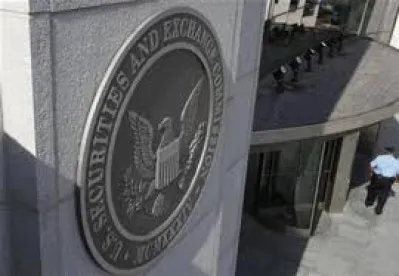The SEC announced a pair of settled orders on Tuesday extending additional provisions of the securities laws over ICOs and other digital assets – the agency’s first ever enforcement actions of their kind. As the SEC has been suggesting for over a year, because digital assets offered and sold in initial coin offerings (“ICOs”) are likely to fall under the definition of securities, businesses that invest in them, or that offer, sell or trade them need to consider their obligations under the Investment Company Act, the Advisers Act and the Securities Act.
In In the Matter of Crypto Asset Management, a crypto-focused hedge fund manager, Crypto Asset Management LP (“CAM”), held out its fund as the “first regulated crypto asset fund in the United States.” Per the settled order, CAM’s statements were incorrect because neither CAM nor the fund were registered with the SEC. Finding that the fund invested more than 40% of its assets in securities (i.e. certain crypto/digital assets), the SEC concluded that it was an “investment company” and thus subject to the Investment Company Act. Because the fund was not registered as an investment company or qualify for any of its statutory exemptions or exclusions, the SEC charged CAM with causing violations of the registration provisions of the Investment Company Act. Furthermore, the SEC alleged that CAM made negligent misrepresentations in violation of the Securities Act and the Advisers Act by stating that it was “regulated.” CAM and its principal agreed to make rescission offerings to all its affected investors in addition to paying a penalty.
In In the Matter of Tokenlot, LLC, the SEC alleged that a self-described “ICO Superstore” operated as an unregistered broker-dealer by offering customers the ability to buy, sell and trade digital assets connected with ICOs. Finding that digital assets issued and traded by TokenLot were securities, the SEC charged TokenLot and its owners with violating broker-dealer registration requirements under the Exchange Act and also alleged that they engaged in unregistered offers and sales of securities in violation of Section 5 of the Securities Act.
Per the SEC’s Order, TokenLot’s principals agreed to destroy TokenLot’s remaining inventory of digital assets with the help of a qualified third party, in addition to paying disgorgement and penalties. The SEC also imposed industry bars against the principals, with the right to reapply after three years.
TokenLot and CAM are the SEC’s first ever enforcement actions expanding these provisions of the securities laws to digital assets and cryptocurrencies, following the SEC’s issuance of the DAO Report on July 25, 2017, its request to lawyers to knock it off with the unregistered coin offerings, and various other enforcement proceedings over the past year. This pair of orders signals that the SEC believes any grace period is over.





 />i
/>i
